8 Best Nutrition Books to Take Charge of Your Health
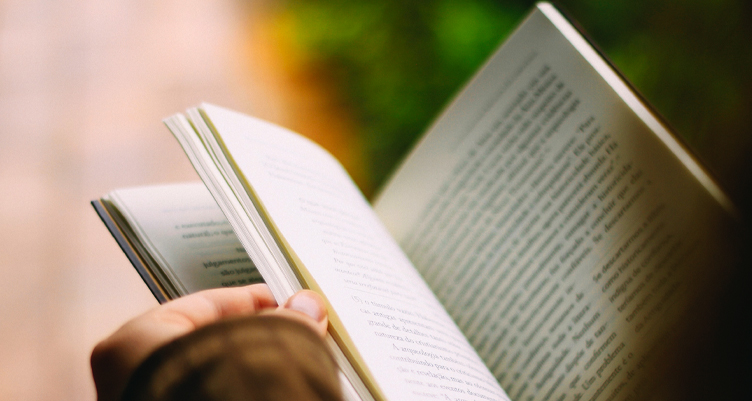
- Tons of nutrition books claim to hold the secrets to weight loss, anti-aging and overall wellness. Where are you supposed to start?
- The following books don’t just tell you what to eat. They explain how your diet impacts your health and how to make actionable changes that help you feel more awesome.
- Did we miss your favorite? Share the article and let us know what you’re reading.
Take a stroll down the diet and health section of your local bookstore. You’re going to see a lot of books that claim to hold the secrets to weight loss, anti-aging and living your best life. How are you supposed to know which books will actually help you hit your goals? Here’s your jumping-off point. The following titles are some of the best diet and nutrition books to add to your to-read list. They don’t just tell you what to eat. They tell you how your diet impacts your health and how to make actionable, science-based changes that help you feel more energized.
8 best nutrition books to read right now
1. “The 4-Phase Histamine Reset Plan: Getting to the Root of Migraines, Eczema, Vertigo, Allergies and More” by Dr. Becky Campbell
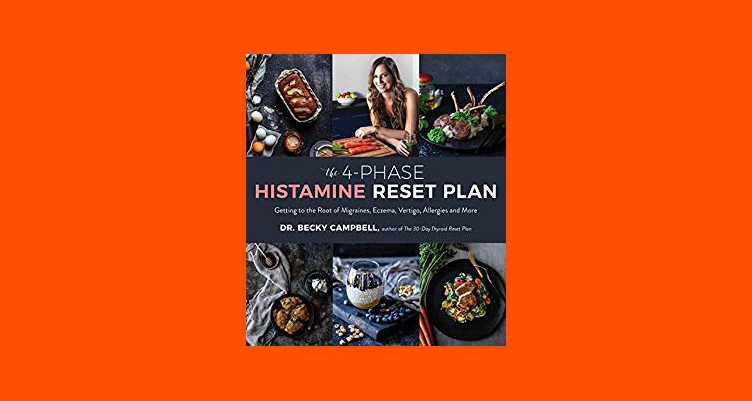
How to use this book: To get a well-rounded, holistic approach to a low-histamine diet, liver care and gut support.
In “The 4-Phase Histamine Reset Plan,” Dr. Becky Campbell, DNM, DC, a board certified doctor of natural medicine, explains how to minimize histamines by addressing your diet, environmental toxins and lifestyle. Histamines are chemicals your body makes to get rid of allergens. But in some people, histamines can build up because of exposure to histamine-rich foods, alcohol, drugs or your environment.[1] If your body isn’t processing histamines correctly, you can develop histamine intolerance, which contributes to symptoms like allergies, migraines, skin issues, sleep problems, digestive issues and anxiety. This book teaches you how to minimize histamines and maximize methods to help your body heal.
Related: Everything You Need to Know About Probiotics
2. “Hashimoto’s Food Pharmacology” by Dr. Izabella Wentz
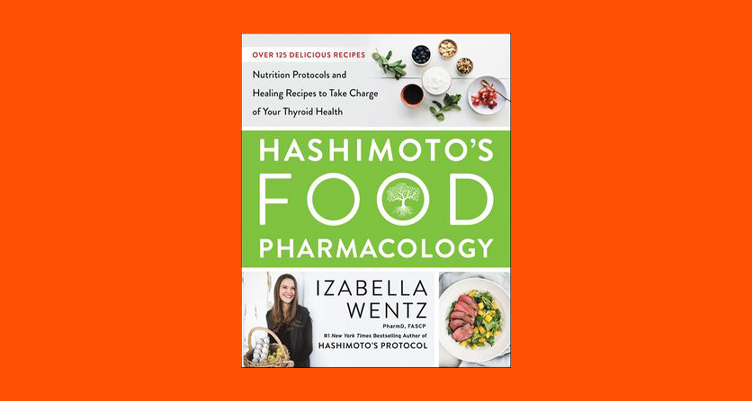
How to use this book: To learn about autoimmunity, the concept of food as medicine and how to cook nourishing meals that support your thyroid.
Your thyroid secretes hormones that play a role in your entire body, from your digestion to your brain function. But your thyroid can be thrown off by factors like your diet, medications and stress — and when your thyroid is out of whack, your entire body suffers. Dr. Izabella Wentz, PharmD, FASCP, is a clinical pharmacist who uses nutrition to help people manage symptoms of thyroid disorders and Hashimoto’s Thyroiditis, an autoimmune disease that damages the thyroid gland. In “Hashimoto’s Food Pharmacology,” Dr. Wentz explains the basics of Hashimoto’s, protocols to support your thyroid and recipes to nourish your body from the inside-out.
3. “Roar” by Dr. Stacy Sims and Selene Yeager
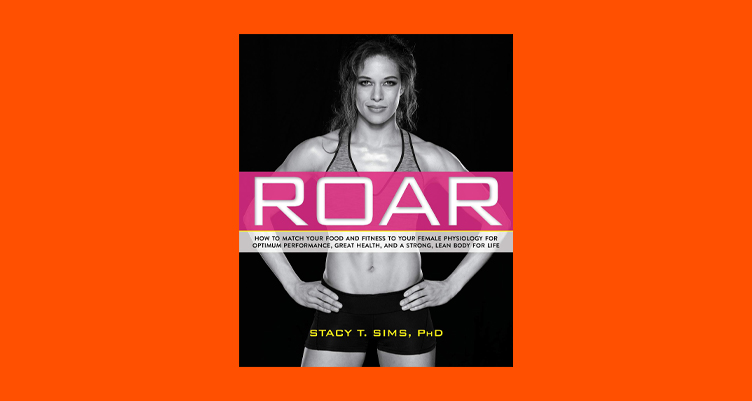
How to use this book: To learn about nutrition and training that works with, rather than against, female physiology.
Nutrition and training plans are often designed for men. The problem is that women are not small men, and their physiological needs are radically different. In “Roar,” Stacy Sims, MSC, PhD, a Stanford-based exercise physiologist and nutrition scientist, teaches women how to adapt their nutrition, hydration and training to achieve optimum athletic performance. You don’t have to be an athlete to benefit from this information, either — “Roar” features personalized nutrition advice for all stages of activity and recovery, and even devotes chapters to the needs of specific life stages like pregnancy and menopause.
4. “The Circadian Code: Lose Weight, Supercharge Your Energy, and Transform Your Health from Morning to Midnight” by Dr. Satchin Panda
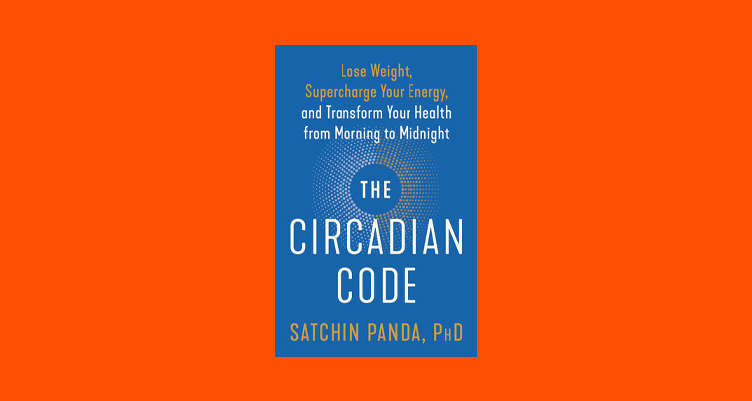
How to use this book: To learn how to support your body’s sleep-wake cycle and improve your sleep quality.
Your sleep quality affects everything from your gut bacteria to your energy levels. That’s why good sleep is the foundation of good health. If your shut-eye is suffering,“The Circadian Code” shows you how to get back on track — and why sleep matters. Dr. Satchin Panda, PhD, is a leading expert in the field of circadian rhythm research. His book distills his research into a concrete plan that helps you optimize your life so you get in sync with your body’s natural sleep-wake cycle, which makes other goals easier — like managing your weight and feeling more energized.
Related: 5 Ways to Support Your Body’s Sleep Cycle, According to a Circadian Rhythm Expert
5. “Food Rules” by Michael Pollan

How to use this book: To get an overview of practical steps to apply Pollan’s overarching advice for healthful eating: “Eat food. Not too much. Mostly plants.”
Michael Pollan is a professor of science journalism at the University of California, Berkeley, but you might be more familiar with his other two books: “In Defense of Food: An Eater’s Manifesto” (2008) and “The Omnivore’s Dilemma” (2006). In “Food Rules,” Pollan distills his findings into a simple, definitive compendium of food wisdom, providing actionable (and witty) steps to eat more whole foods, cook more often and eat until you’re satisfied — not stuffed.
6. “Food: What the Heck Should I Eat?” by Mark Hyman

How to use this book: To get myth-busting insights about every food group, plus wholesome recipes.
Here’s an unfortunate truth: The nutrition world is full of conflicting food advice, like “fat is bad,” “carbs are evil” and “whole grains are healthy.” (None of those statements are inherently true.) Dr. Mark Hyman, MD, breaks down science-backed insights about food and outlines principles that show you how to eat well: fill your plate with mostly non-starchy vegetables, followed by healthy fats, high-quality protein and starchy vegetables. Dr. Hyman’s latest book answers the question, “What the heck should I eat?” with easy-to-understand science and delicious, wholesome recipes.
7. “Whole Food Cooking Every Day: Transform the Way You Eat with 250 Vegetarian Recipes Free of Gluten, Dairy, and Refined Sugar” by Amy Chaplin
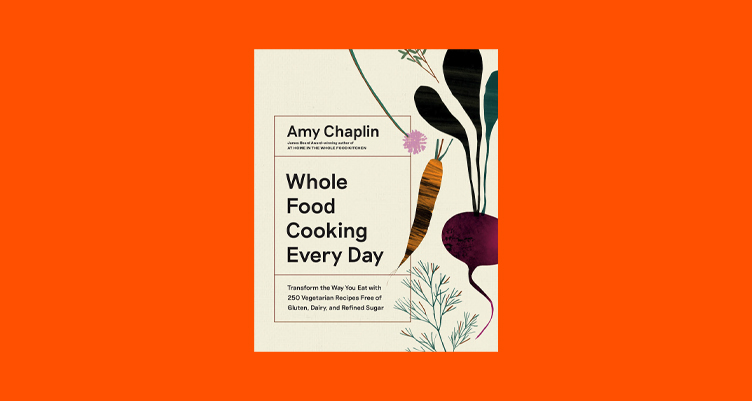
How to use this book: To get comfortable cooking with whole foods in the kitchen and create meals that delight your taste buds.
You know you’re supposed to eat your vegetables, but it’s hard to know what to cook, how to cook it and (most importantly) how to make it taste good. In “Whole Food Cooking Every Day,” chef Amy Chaplin explains how to stock your pantry with nutrient-rich staples, how to cook with local and seasonal ingredients and how to cook nourishing meals at home. Whether you’re vegetarian, paleo or simply trying to get more comfortable in the kitchen, this cookbook gives you the tools you need to prepare meals that make you feel as good as they taste.
8. “Intuitive Eating: A Revolutionary Program That Works” by Evelyn Tribole and Elyse Resch

How to use this book: To learn how to listen to your body’s hunger cues and change your relationship with food.
Intuitive eating isn’t a diet or food plan. It’s an approach to food that focuses on understanding your hunger cues and rediscovering what satisfaction, fullness and nourishment feel like to you. In “Intuitive Eating,” authors Evelyn Tribole, MS, RDN, and Elyse Resch, MS, RDN, show you how to reject restrictive chronic diet mentalities and achieve a new relationship with food. Your body is capable of telling you what you need on a physical and physiological level. Intuitive eating is a way to get reacquainted with those signals.
Did we miss your favorite nutrition book? Share this article and let us know what you’re reading.
Ready to take charge of your health? Download the free Bulletproof 30 Day Upgrade and get ready to feel like a new you.
Sign up for early access to sales, product launches, the latest Bulletproof news and more!



